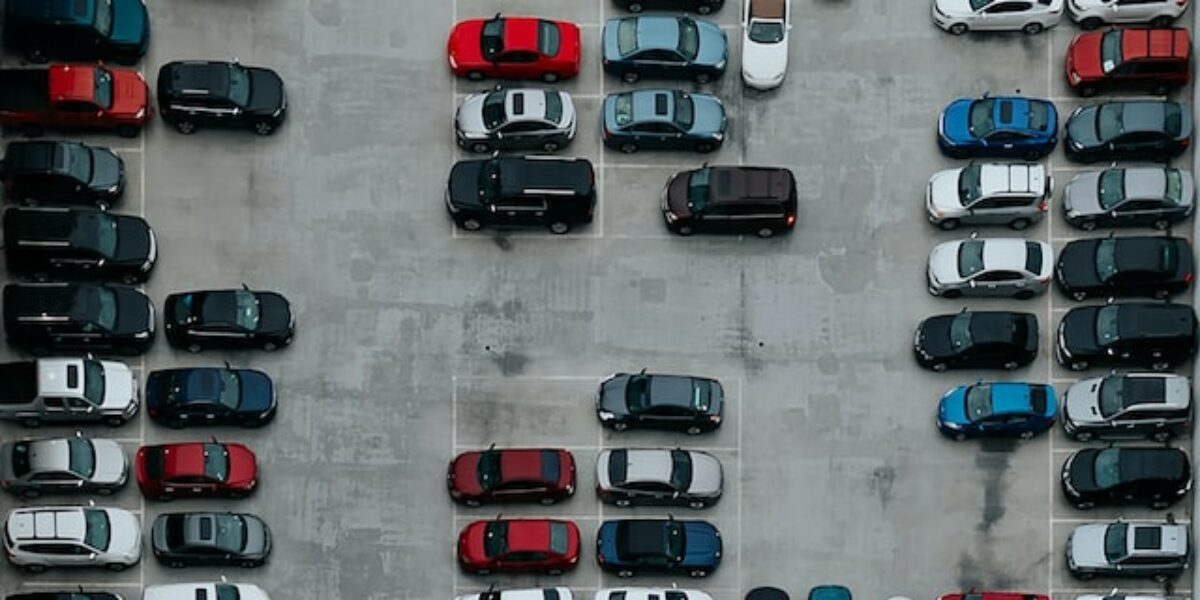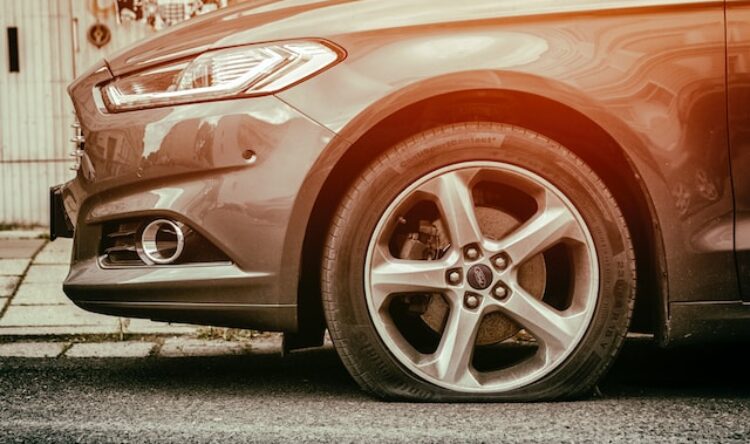Car sales rising
The EV transformation is happening, but hardly charging ahead
Sales of new cars in 2022 were the lowest for thirty years.
On a more positive note, sales in December rose for the fifth consecutive month, an 18% increase. About 128,000 new cars were sold.
However, overall registrations for 2022 fell 2% to 1.61 million units as compared with 2021. The post pandemic-related global parts shortages are cited by the Society of Motor Manufacturers and Traders (SMMT) as the main factor. However, changing to more expensive electric vehicles, as well as the cost of living crisis are also major ongoing issues.
Plugging the gap
New car registrations in the UK fell last year to their lowest level in three decades, despite a recovery in the second half of 2022.
Demand for electric vehicles continues to grow and they accounted for almost a fifth of new car sales.
However, Mike Hawes, chief executive of the SMMT, believes charging infrastructure is not being built quickly enough to cope with growing demand. He warns that this will continue to inhibit growth, along with the scrapping of government incentive schemes to lower new EV prices.
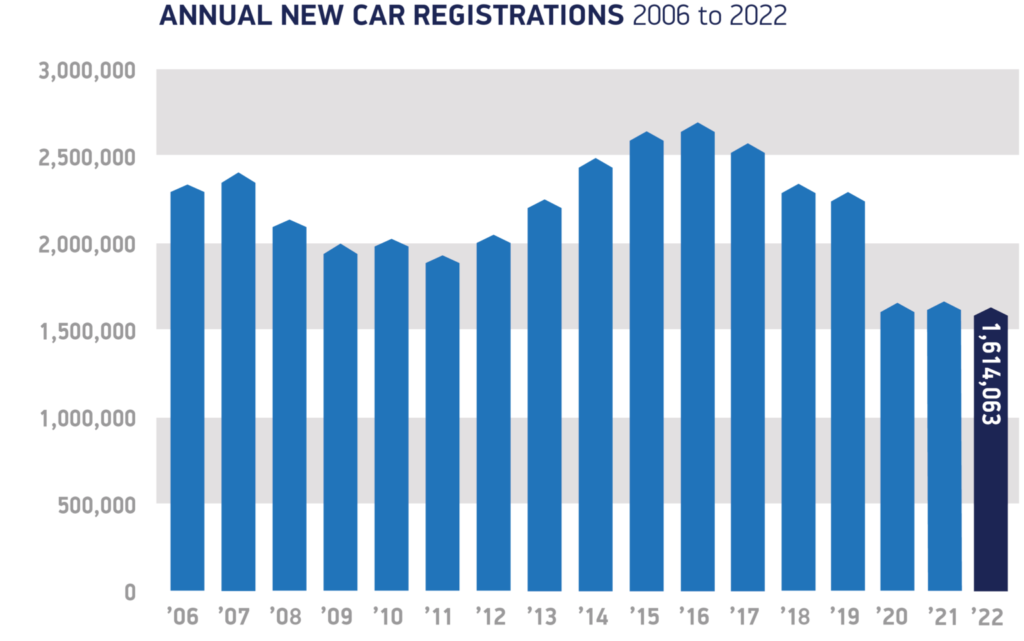
Up and down
Across the whole of 2022, 1.61 million new cars were registered in the UK. That was the lowest level since 1992.
Sales were slightly lower than in 2021, a period affected by lockdowns and other restrictions. Moreover, they were 25% down on 2019, the last “normal” year before the global pandemic.
Demand for new vehicles remains high, but manufacturers struggle to get parts, particularly semi-conductors. These are used in a vast array of electronic systems, from in-car entertainment to engine management.
Under the weather
“It’s still the long Covid effect,” said Mike Hawes, chief executive of the SMMT. “The key issue is global disruption to supply chains,” he added.
“The demand we know is there… manufacturers have just really struggled to be able to make vehicles in sufficient quantities.”
The situation did improve significantly in the second half of the year, with registrations growing for five months in a row.
That trend is expected to continue this year, despite fears of recession. The SMMT is forecasting sales of roughly 1.8 million in 2023.
The UK’s best selling cars of 2022
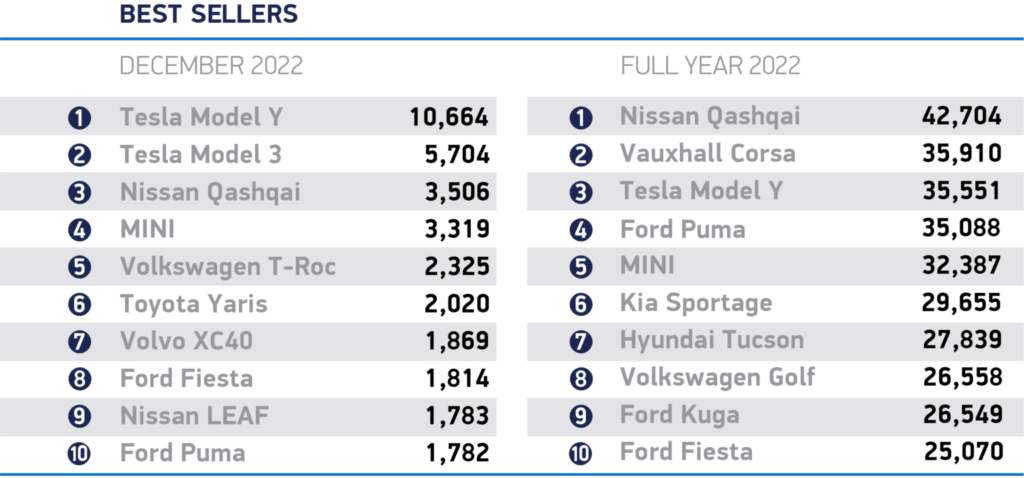
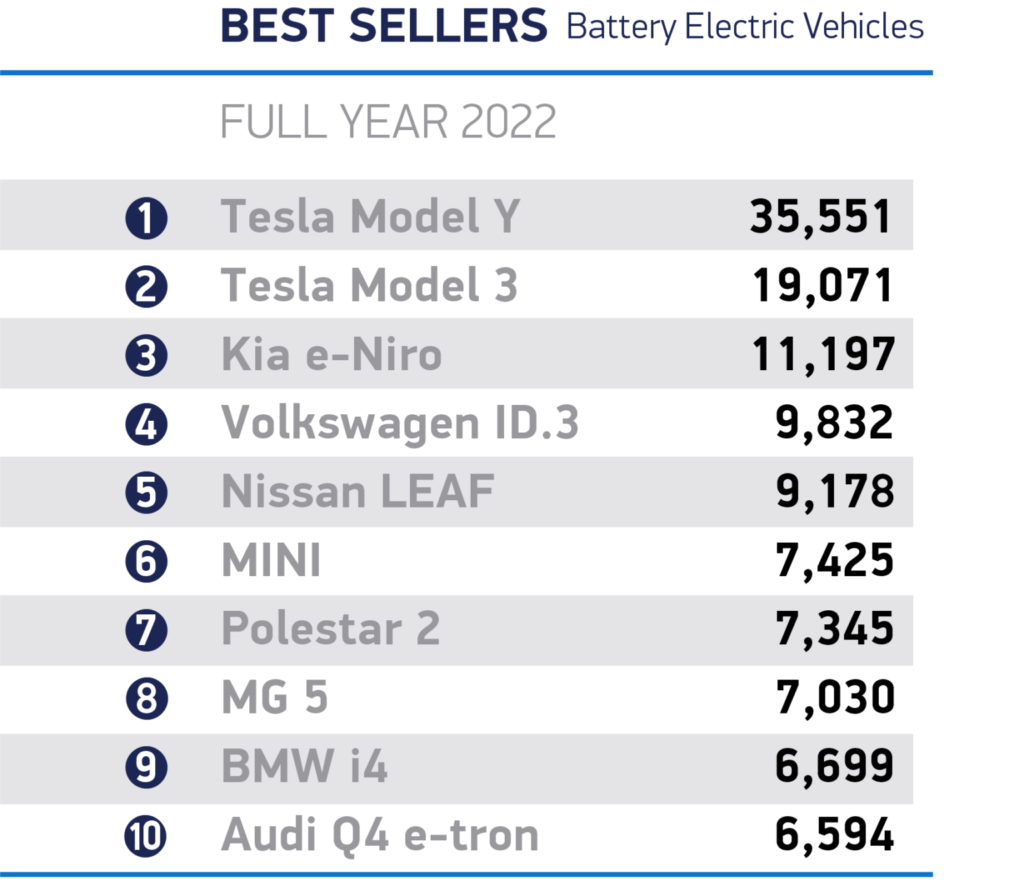
Electric avenue
Sales of electric cars, meanwhile, continue to grow. They rose from 190,700 to 267,000 – with their market share climbing from 11.6% to 16.6%.
In December, that figure rose to just under 33%. It should be noted that this reflects the timing of shipments from overseas by Tesla.
A Zero Emission Vehicle (ZEV) mandate is due to come into force in 2024. This will compel manufacturers to ensure that a proportion of the cars they sell are fully electric.
The sale of new petrol and diesel cars is due to be banned in 2030, although some hybrids will still be allowed on the market until 2035.
Exact details on the rules about how these targets are to be achieved are yet to be set out. Manufacturers are worried that this could affect important investment decisions.
The SMMT is also warning that the number of public charging points is not increasing quickly enough to reach the government’s target of having 300,000 by 2030.
“To get to that 300,000, you need about 100 new charging points to be installed every day until 2030,” said Mr Hawes.
“Current rates, up until the end of quarter three, were about 23 a day. So the danger is the user experience gets worse before it gets better.”
Electric cars will no longer be exempt from vehicle excise duty from April 2025 as part of a government plan to make the motoring tax system “fairer”. In the shorter term, the huge increase in electricity prices is also pushing up the running costs of EVs.
